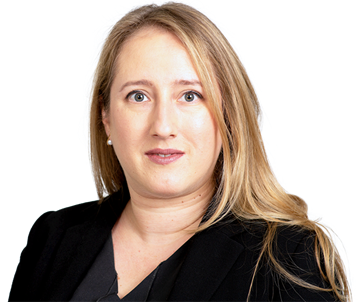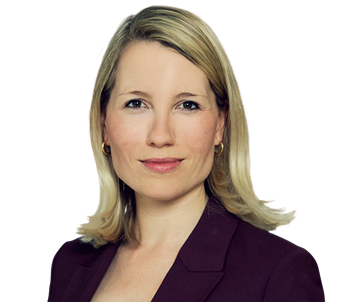The Unified Patent Court
UPC FAQs
Below you will find some frequently asked questions on Europe's new patents regime.
Questions
1. When will the UPC start?
The Unified Patent Court opened its doors on 1 June 2023.
From 1 March 2023 (the start of the “sunrise period”), applicants for and proprietors of European patents have been able to opt out their application or patent from the competence of the UPC.
2. What is the difference between a unitary patent (UP) and a European patent (EP)?
The UP will have unitary effect across all member states (at the time of the request for unitary effect). It will be obtained through the European Patent Office in the same way as a ‘classical’ EP, but applicants will request the unitary effect within one month of the grant of the EP.
Classical EPs will continue as before but will be subject to the transitional regime described in FAQ #3.
3. Is there a transitional period?
After entry into force of the UPC Agreement, there will be a seven-year transitional period. During this period, ‘classical’ EPs may be litigated before either the UPC or the national courts and it will be possible to opt out EPs from the jurisdiction of the UPC (see FAQ 4). The UPC’s Administrative Committee may extend the transitional period by a further seven years.
4. Can I maintain patent protection in Europe but avoid the UPC altogether?
During the transitional period, you can opt out ‘classical’ EPs from the jurisdiction of the UPC for the lifetime of the patent (and its SPCs). All litigation relating to the patent would be brought in the national courts. But once an action has started in the UPC, the patent can no longer be opted out.
Applications for opt-outs can also be made before entry into force of the UPC Agreement during a ‘sunrise’ period.
If a patent is opted out, the opt out can be withdrawn provided no national litigation has been commenced in the meantime.
Commercial and strategic issues will affect your decision whether to opt out. Opting out will avoid the risk of your patent being invalidated across Europe in a single revocation action. But you will lose the ability to get a ‘Europe-wide’ decision against an infringer in a single action if you are unable to opt back in.
Whether to opt out is the most immediate decision faced by EP owners. We are advising many of our clients on the pros and cons of each option.
5. Where should I bring an infringement claim under the UPC?
Generally, you must sue in the local/regional division of the member state where the infringement is taking place/threatened or where the defendant is domiciled.
You can sue at the central division if:
- the defendant is domiciled outside the territory of the member states;
- there’s a pending revocation action relating to the same patent before the central division; or
- there’s no local or regional division in the member state(s) where infringement is taking place or where the defendant is domiciled.
You may also agree with the defendant to bring proceedings before a different division.
6. Where should I bring a revocation action under the UPC?
Revocation actions must generally be brought before the central division.
But if an infringement claim has been brought against you before a local/regional division, you must bring any counterclaim for revocation before the same division.
Such a counterclaim for revocation may then be sent to the central division, which is explained in FAQ 11.
7. A claim has been made against me under the UPC - can I challenge the venue?
Within one month of service of the statement of claim, you may lodge a preliminary objection to the jurisdiction and competence of the UPC or the competence of the division where the claim has been brought.
8. What language will my claim be heard in?
Claims in the central division will be heard in the language of the patent.
Each local and regional division will designate the language (or languages) in which it will hear cases. This will be either:
- the official EU language (or languages) of the host member state (or an official EU language designated by member states sharing a regional division); or
- an official language of the EPO (English, French or German) chosen by the member state(s).
All local divisions have designated English as an additional language for UPC proceedings and we expect many cases will be heard in English. Proceedings in the Nordic-Baltic regional division will be conducted only in English.
The parties and the panel may agree to hear a claim in the language of the patent; the President of the Court of First Instance may also order this, if a party requests.
9. How long will it take to get a decision under the UPC?
The aim is for a one-day oral hearing within about 12 months.
The written procedure phase is likely to take around nine months followed by an interim procedure phase taking around three months, including any interim conference, and then the oral hearing.
The court will aim to give a decision within six weeks of the oral hearing, but complex cases may take more time to prepare and be heard by the court.
10. Can I get a preliminary injunction?
You can apply to the court for a preliminary injunction.
You can do this before bringing infringement proceedings and without giving notice to the alleged infringer.
When deciding whether to grant a preliminary injunction, the court will take into account the potential harm to each party from granting or refusing the injunction. You might have to give security to compensate the defendant if your claim ultimately doesn’t succeed, particularly if your application is made without notice.
11. What is bifurcation? Can I appeal a decision to bifurcate?
Bifurcation has long been one of the most controversial issues in European patent litigation and this was reflected in the discussions on the UPC procedural rules.
It is most likely to occur if an infringement claim is brought in a local or regional division and the defendant counterclaims for revocation.
The local or regional division may:
- proceed with both claims, adding a technically qualified judge to the panel;
- bifurcate the claims by proceeding with the action for infringement and referring the counterclaim for revocation to the central division; or
- refer the entire case to the central division (if both parties agree).
Bifurcation has been controversial because of the potential for an ‘injunction gap’, where an injunction is granted by the court considering infringement before the patent’s validity has been determined by a different court.
The drafters of the rules of procedure have tried to address this concern in several ways.
- The local or regional division may stay the infringement proceedings pending the outcome of the revocation proceedings, and the local or regional division must stay the infringement proceedings if the patent is highly likely to be held invalid. If the infringement action isn’t stayed, the central division will try to accelerate the revocation claim so it’s heard before the oral hearing in the infringement claim.
- The local or regional division may give its infringement decision subject to the patent being held valid by the central division.
- The local or regional division must tell the central division the dates for the interim hearing and the final oral hearing in the infringement action (so that the central division can take those dates into account when setting the timetable for the revocation action).
It is unclear whether the local and regional courts will have much appetite for bifurcation and whether there will be any disparity among those courts in their approach (and how the Court of Appeal will view this).
Bifurcation may also occur where a revocation action is brought before the central division and a claim for infringement of the same patent between the same parties is brought later before a local or regional division, but again the decision lies with the local or regional division.
A decision to bifurcate may be appealed within 15 days, with the leave of the Court of First Instance. A refusal to grant leave can be reviewed by the Court of Appeal on request.
12. Which judges will hear my case?
Local and regional division panels will be composed of three legally qualified judges, including one judge who is not a national of the host member state(s).
In local or regional divisions in countries with less than 50 patent cases per year before the UPC starts, panels will include two non-national judges.
A technically qualified judge will be allocated to the panel of the local or regional division if the panel decides to hear a counterclaim for revocation. A party, or the panel, can then request that a technically qualified judge join the panel.
Central division panels will usually consist of two legally qualified judges from different member states and one technically qualified judge.
Court of Appeal panels will be composed of three legally qualified judges from different member states and two technically qualified judges.
UPC judges are drawn from different member states. On 19 October 2022, the UPC confirmed the appointment of 85 judges (34 legally qualified and 51 technically qualified judges).
13. How much will it cost to bring a claim?
The court fees for the UPC will be, in part, based on the value of the litigation.
Fees for infringement claims will be a fixed €11,000 plus a value-based fee for all claims worth more than €500,000 (starting at €2,500 and rising incrementally up to €325,000 for claims over €50 million).
Fees for revocation claims will be fixed at €20,000 while counterclaims for revocation will be subject to a fee limit of €20,000.
If your claim succeeds, you can recover your legal costs from the other side, subject to cost caps. The Administrative Committee will adopt a scale of ceilings for recoverable costs by reference to the value of the proceedings.
More information
Team

Laura Whiting Partner
London, Dublin

Dr. Nina Bayerl (née Schäffner) Partner
Munich, Düsseldorf

Frank-Erich Hufnagel Partner
Düsseldorf

Rutger Kleemans Partner
Amsterdam

Wolrad Prinz zu Waldeck und Pyrmont Partner
Düsseldorf, Munich

Dr. Christopher Stothers Partner
London, Dublin

Jelle Drok Partner
Amsterdam